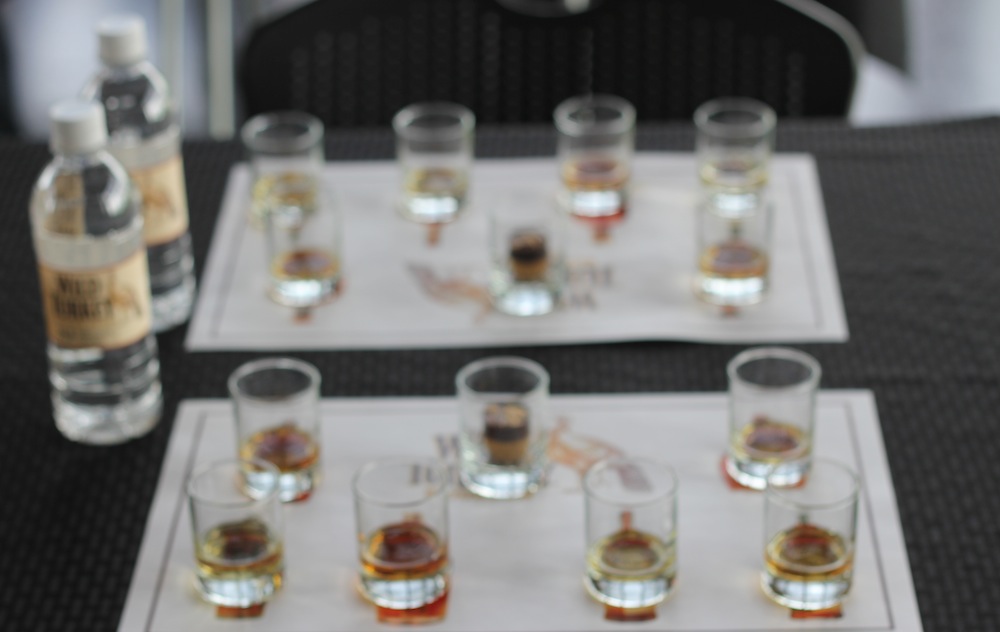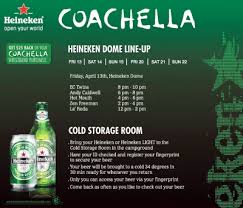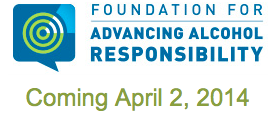In the Doghouse
Search
In the Doghouse
In the Doghouse: DISCUS Spring Break Road Trip for Journalists
May 13, 2014
 |
| Journalists received unlimited booze during a 5-day tour of American whiskey facilities, courtesy of the Department of Agriculture and DISCUS. |
In an effort to promote American distilled spirits such as Tennessee whiskey under the guise of news, the Distilled Spirits Council of the United States (DISCUS) treated dozens of journalists last month to a 5-day liquor-sodden Spring Break lobby tour. Journalists were put up at historic hotels, fed fancy dinners, plied with endless shots of whiskey (along with water and vitamins to prolong the onset of pain...and keep them drinking), and given tours of various whiskey facilities.
The U.S. Department of Agriculture paid the transportation costs for journalists from other countries to attend the booze cruise, ostensibly to expand the international market for American booze and ease trade agreements. Meanwhile, DISCUS just recruited a bevy of enthusiastic, loyal PR shills who went home after their free vacation able to extol the virtues of Tennessee whiskey and those who produce it.
What's the problem, you say? Consider this: While Uncle Sam paid for writers to get sloshed for 5 days and nights, alcohol-related harm costs U.S. federal, state and local governments $94 billion a year in crime, health care, lost productivity, and property damage. And, while DISCUS threw the whiskey party for journalists, it funneled even more lobbying dollars into the privatization campaign in Oregon, bringing the DISCUS total to $300,000. Along with grocery conglomerates Fred Meyer and Safeway, DISCUS is the leading contributor to Oregonians for Competition, the committee sponsoring the initiative that seeks to wipe out the state's monopoly on liquor and wine sales and reap the profits for themselves. Oregon's state monopoly on liquor sales represents one of the most effective evidence-based policies to prevent excessive consumption and alcohol-related harm. DISCUS spends millions each year (over $5 million in 2013) lobbying against evidence-based alcohol policies, including increased taxes, reduced access and outlet density, state monopolies on alcohol sales, and restrictions on alcohol advertising.
The Surgeon General should treat these journalists to a 5-day tour of hospital emergency rooms, chemotherapy wards, and alcohol rehab facilities, to experience the real legacy of DISCUS, its spirits producer members, and the public health problems they continue to deny.
In the Doghouse: Heineken Targets Teens, Tweens with Snapchat
April 23, 2014
 |
Branding youth in 10 seconds or less...
Heineken partnered with controversial social media app Snapchat to promote a branded online scavenger hunt at the recent Coachella music festival (also sponsored by Heineken), where the key audience for corporate sponsors and their brands was in their early 20s or younger. Coachella and its sponsors target teenagers; celebrity attendees such as Vanessa Hudgens and Katy Perry wear fashion "synonymous with spring style for young consumers," and Heineken logos were everywhere.
In its flagrant effort to gain Snapchat's overwhelmingly teenage audience, Heineken hides behind the laughable practice of age-gating, which asks users to answer that they are 21 or older before entering the site. A second-grader would have the requisite math skills to calculate and enter a valid birthdate.
The Heineken/Snapchat duo is one of the latest egregious examples of the farce that is alcohol advertising self-regulation in the U.S. As studies have consistently shown, industry self-regulation is ineffective. Without an independent, third-party review body, and enforcement power and significant penalties beyond requests to pull ads, youth overexposure to alcohol advertising continues.
Meanwhile, how many underage youth used a fake birthdate to play the Heineken Coachella scavenger hunt on Snapchat, while Big Beer and the industry trade associations pat themselves on the back?
 |
 |
| "GZA destroying bros with his lyrics at the Heineken House," according to LAWeekly.com |
Vanessa Hudgens, star of "High School Musical." JustJared.com. |
In the Doghouse: Century Council Rebrand Rehashes Old Tricks
April 1, 2014
 |
Just in time for Alcohol Awareness Month, the Century Council (educational front group arm of spirits producer trade group DISCUS) has announced a major rebrand effort, changing its name to sound more like an official NGO or policy institute: Foundation for Advancing Alcohol Responsibility (FAAR). Whatever this industry-funded membership group calls itself, its real mission remains--to absolve its founders and funders from accountability for the staggering harm their products cause, and to raise as much profit and goodwill for their shareholders as possible.
The new name does sound a little more grown up--like a bona fide, credible, research-based organization whose newly revamped mission is to help people drink a little less dangerously. The focus group and stakeholder feedback must have given them the green light - and hey, that's one of the theme colors, too! (Unfortunately, our invitation to participate in the stakeholder group must have gotten shunted to the Spam folder...)
But here is the reality. The corporations that fund these groups:
- Pay academic researchers to discredit the evidence of alcohol-related harm from their products and marketing tactics, and promote spurious research to support the industry/producer agenda.
- Hire public relations professionals to connect concern about just 2 of the many types of alcohol-related harm with activities that have no evidence of being effective at decreasing either harm or consumption (and support their marketing efforts and profits).
- Actively lobby against evidence-based policies that reduce harm, such as increased excise taxes, restrictions on alcohol advertising, state control over alcohol sales, and decreases in outlet density.
- Use "Drink Responsibly" as a marketing tactic to build loyalty and sell alcohol while blaming youth, parents, schools, police, and anyone else but the product and their own practices for alcohol-related harm.
The Century Council's announcement was released to coincide with Alcohol Awareness Month so that the industry voice can take over the public health discussions and events during the entire month. Industry leaders such as Diageo chief executive Ivan Menezes whine about his "right" to influence public health regulation while Diageo's (and the other spirits producers') influence protects profits and continues paving the path to harm.
Margaret Chan, the director-general of the World Health Organisation, put it bluntly: "As we learned from experience with the tobacco industry, a powerful corporation can sell the public just about anything...This is not a failure of individual will-power. This is a failure of political will to take on big business...When industry is involved in policy-making, rest assured that the most effective control measures will be downplayed or left out entirely."
The Big Alcohol conglomerates and the billionaires that run them can focus group a new name and logo for their group, slap a hashtag in front of the word responsible, go live with a web address they bought in 2001, and splash their rebrand all over the web. As long as these spirits producers' products dominate the top 10 brands consumed by underage youth (Captain Morgan, Smirnoff (Diageo); Absolut (Pernod Ricard) and Jack Daniels (Brown-Foreman), and continue to be disproportionately consumed by youth (Bacardi; Malibu rum (Pernod Ricard), we've got their hashtags right here: #hypocrite #alcoholharm #notresponsible #alcoholindustryisnotpublichealth
More Articles ...
Help us hold Big Alcohol accountable for the harm its products cause.
| GET ACTION ALERTS AND eNEWS |
STAY CONNECTED    |
CONTACT US 24 Belvedere St. San Rafael, CA 94901 415-456-5692 |
SUPPORT US Terms of Service & Privacy Policy |
Copyright © 2024 Alcohol Justice. All Rights Reserved.
Joomla! is Free Software released under the GNU General Public License.


